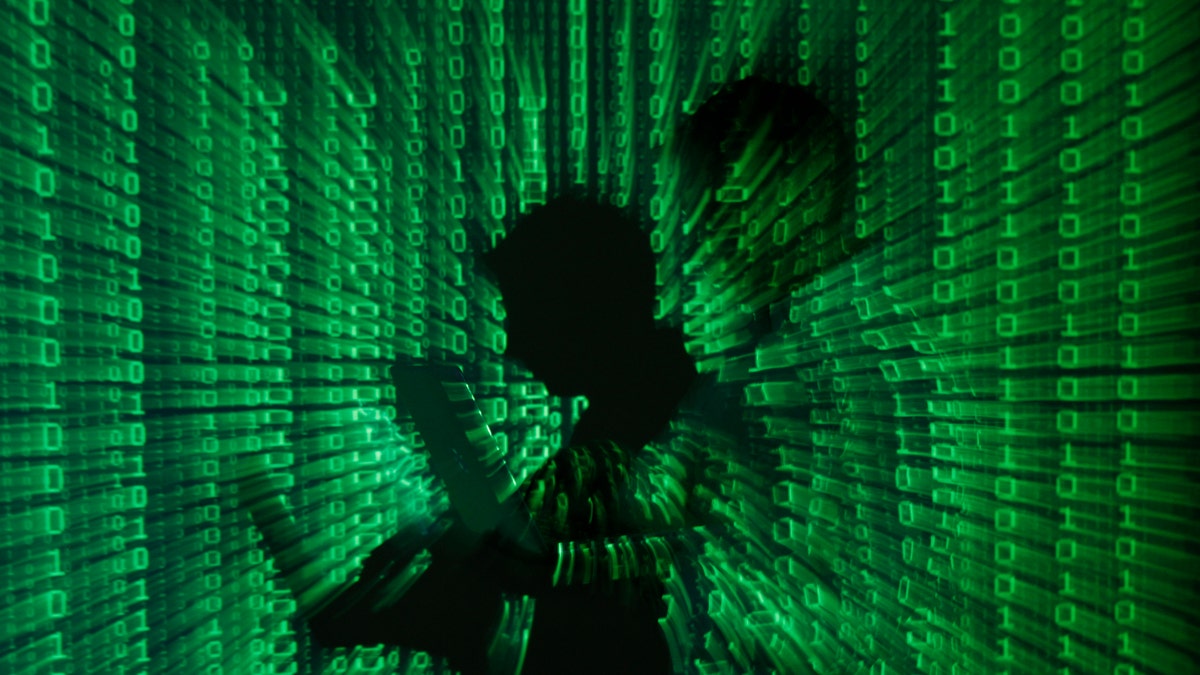
An illustration picture shows a projection of binary code on a man holding a laptop computer, in an office in Warsaw June 24, 2013. REUTERS/Kacper Pempel (POLAND - Tags: BUSINESS TELECOMS TPX IMAGES OF THE DAY) - RTX10ZB5 (REUTERS/Kacper Pempel)
Are we so lazy that we can't roll out of bed to push the button on a coffee maker?
As part of the ‘who-the-heck-needs-it’ backlash against the Internet of things, critics are raising such questions about the so-called smart home. From door locks to thermostats and lights, everything is getting connected to the Web and using smart phone apps. And major companies are already fighting over the smart home real estate. Google and Apple are planning software introductions this fall, Lowe's and Home Depot are pitching their own DIY systems, and this week Samsung bought SmartThings, a startup that sells kits for connecting home devices to the Net.
Critics complain that instead of simplifying our lives, smart devices are making things needlessly complicated. It's certainly true that I've lost many hours of my life trying to connect door locks to my network and futzing with experimental Internet-enabled coffee pots, like Mr. Coffee's $150 WeMo smart machine (available this October). And I've installed more Web cams than most people have had hot dinners. When batteries die, locks can become inoperable, sensors can inexplicably malfunction, and just when the temperature drops, your smart thermostat can go offline. All this is true.
And some smart home components seem like digital chimeras. There are, for example, the remote controlled lighting systems like Connected by TCP, which let you control networked LED lights from an online app. In the "it's a dessert topping and a floor wax" category, there's the AwoX StriimLight Mini Color, an LED bulb that not only can be controlled remotely but also changes color and doubles as a wireless Bluetooth speaker. But even these seemingly frivolous smart home devices have redeeming qualities. I can shut off the TCP lights as I fall asleep without having to get up, and the AwoX StriimLight does well in a bathroom, where speakers are not easy to install (the blue light setting is flattering, as well).
For the most part, however, it's the sensors, locks and monitoring devices that will be the cornerstones of the smart home. Furthermore, most of the people who've ridiculed the smart home of connected things haven't personally set one up themselves.
Moreover, many connected or smart devices that were the butt of jokes for years are now a reality. The Internet connected fridge was a source of derision in the computer geek community for decades. But today you can buy a $3,500 Samsung refrigerator with an 8-inch LCD screen and apps. It's one more step towards the day when I won't have to remember what's in my fridge. It'll tell me on my phone what to pick up at the grocery store or what things I could make for dinner from what's already there.
Only a few years ago, television manufacturers insisted that their sets would never come with Internet connections or loaded with software; they'll just end up crashing like Windows computers. Today, Netflix makes more money in subscriptions than HBO, and smart TVs are all but de rigueur.
The automobile industry is going through similar convulsions. There’s plenty of grumbling from car companies and auto enthusiasts that all this connected car technology is just a distraction, a sideshow to the enjoyment of driving. The first car that crashes because its automatic lane centering failed, and critics will say, "I told you so." But the fact is that in a few years autobraking and similar technologies will respond to messages over the Internet ("Accident ahead!"), saving lives, money, and energy. The connected car of the future will change the transportation infrastructure as we know it, for the better.
In a similar, although less revolutionary manner, the smart home will change our lives--once the problem of integration is solved. The Mr. Coffee machine can talk to other Belkin WeMo devices, but not to the Lowe's Isis system or TCP lights or Roku box or to my car, for that matter. If they did all talk to each other, when I was 5 minutes from home, the coffee would start and when I opened the front door, the lights would go on in my office and my Fountains of Wayne Pandora channel would start playing.
Critical security and healthcare monitoring systems will also benefit greatly from integration, which is why Apple and Google are desperately trying to position themselves as the great integrators. Someday it will be natural to have your medicine cabinet remind you to take a blood pressure pill or to get a message from grandmother's house that she hasn't been down to the kitchen this morning.
So in this way the steady digital creep of the Internet of things and smart homes will gradually change our expectations. In the future, the question isn't going to be, why would you want to connect that thing to the Internet? The question is going be, why isn't it connected to the Internet?
